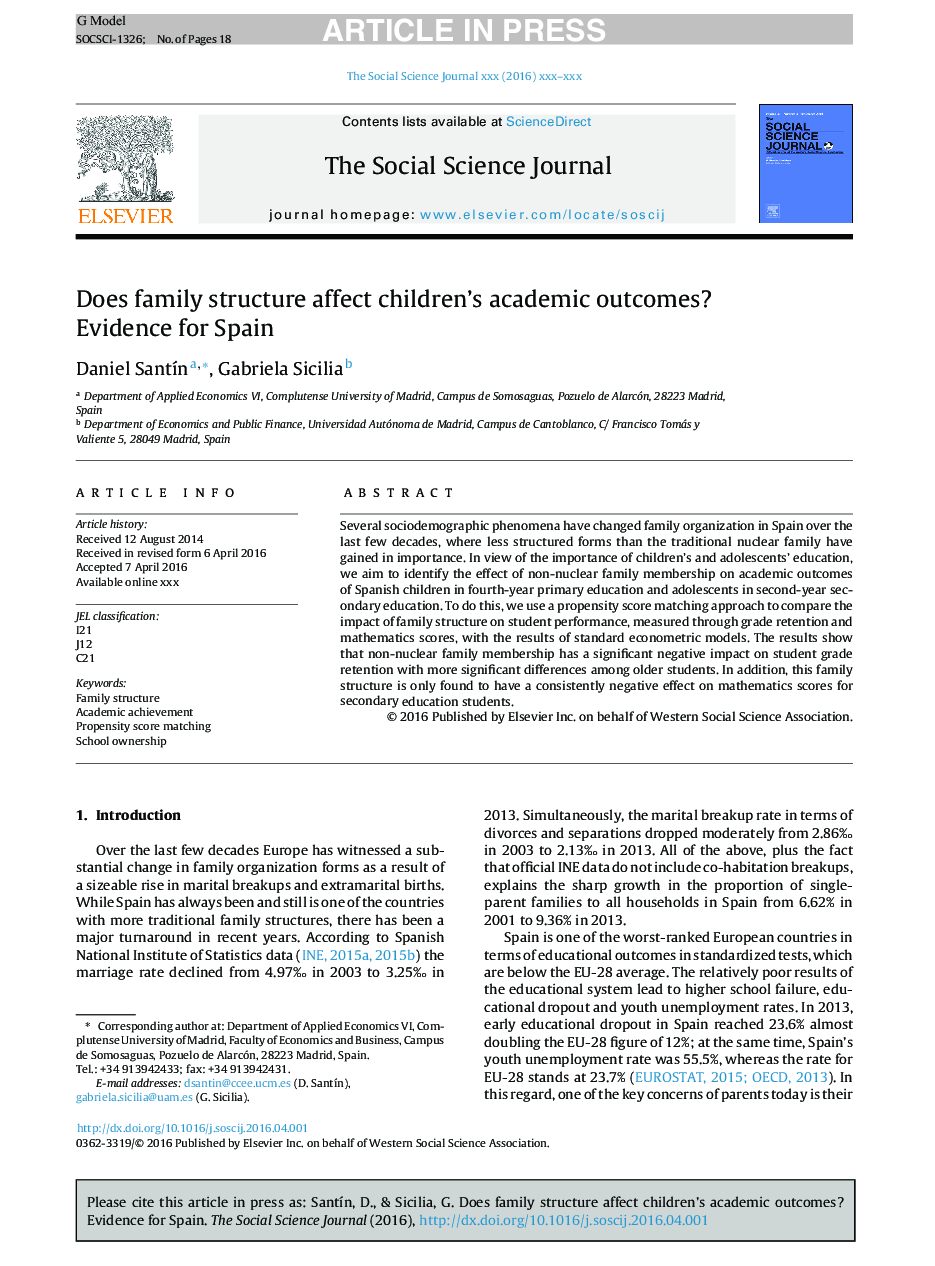| Article ID | Journal | Published Year | Pages | File Type |
|---|---|---|---|---|
| 4761927 | The Social Science Journal | 2016 | 18 Pages |
Abstract
Several sociodemographic phenomena have changed family organization in Spain over the last few decades, where less structured forms than the traditional nuclear family have gained in importance. In view of the importance of children's and adolescents' education, we aim to identify the effect of non-nuclear family membership on academic outcomes of Spanish children in fourth-year primary education and adolescents in second-year secondary education. To do this, we use a propensity score matching approach to compare the impact of family structure on student performance, measured through grade retention and mathematics scores, with the results of standard econometric models. The results show that non-nuclear family membership has a significant negative impact on student grade retention with more significant differences among older students. In addition, this family structure is only found to have a consistently negative effect on mathematics scores for secondary education students.
Related Topics
Social Sciences and Humanities
Psychology
Social Psychology
Authors
Daniel SantÃn, Gabriela Sicilia,
